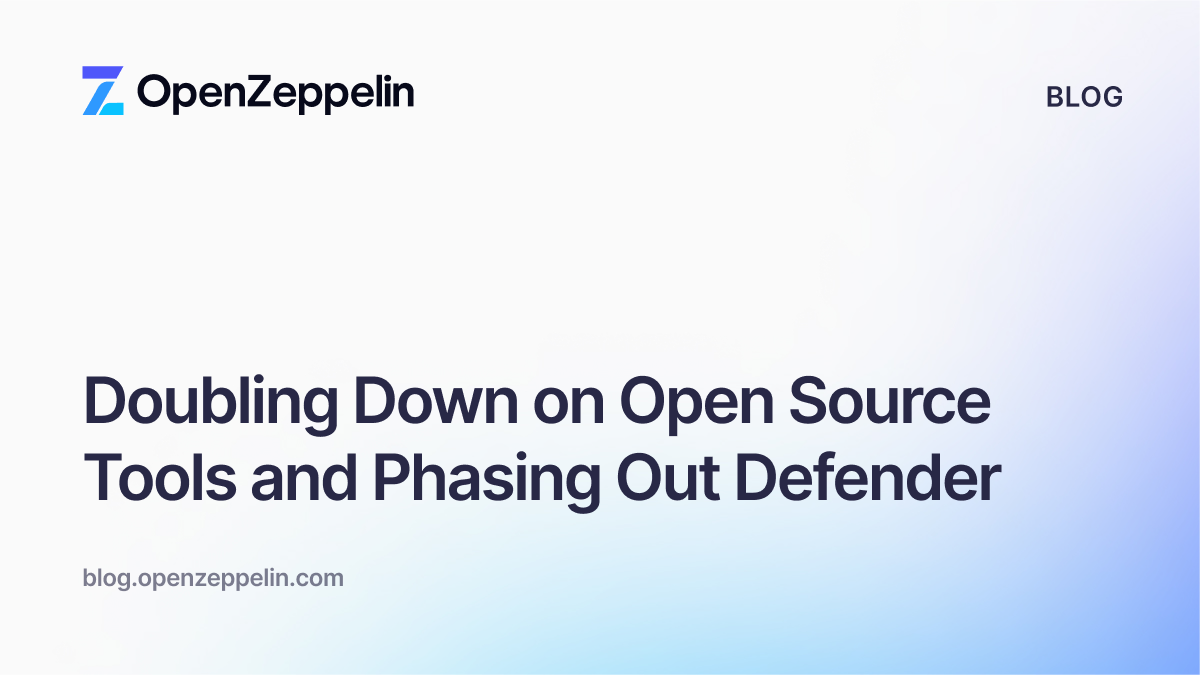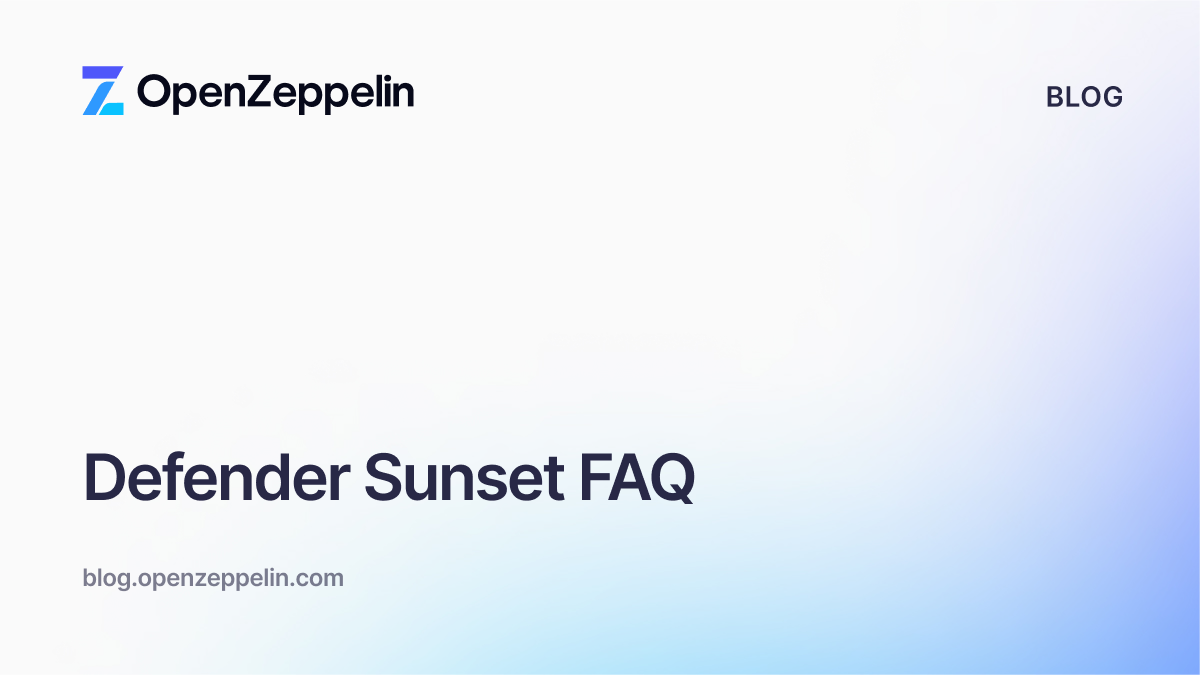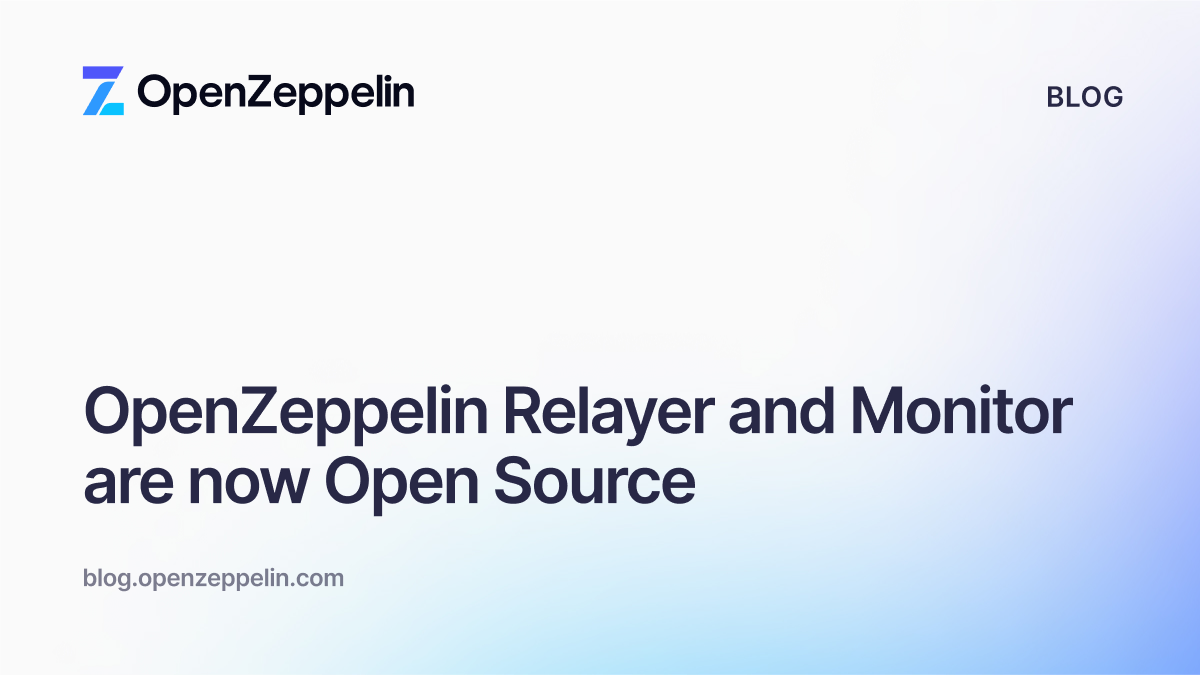by Manuel Araoz
We have refined the ZEP token mechanics since this article was originally posted, check out the latest version
ZeppelinOS is an operating system designed specifically for smart contracts. It’s an open-source, decentralized platform of tools and services to securely develop and manage any smart contract application.
For more information on the platform itself, please refer to the first version of whitepaper.
While other projects have created tokens purely for fundraising purposes, ZeppelinOS is only made possible through the implementation of a native token. The ZEP token is designed to streamline the developer experience by facilitating smart contract interoperability and decentralizing the governance of the platform.
1. Interoperability
Today, smart contracts need access to the native tokens of other protocols in order to transact in their networks and interact with their services. This becomes onerously complex when integrating multiple applications, reducing the pace of innovation and impeding the long-term capabilities of distributed applications.
 A unified token for all network settlements
A unified token for all network settlements
With ZeppelinOS, a single token (ZEP) can buy and sell goods and services from thousands of contracts built on separate protocols. All transactions occur on a single, publicly auditable transaction ledger.
This creates a plug-and-play experience, allowing developers to integrate various protocol services into any decentralized app. Sellers on the marketplace can easily monetize their smart contract assets and capabilities to this global base of ZEP-holding consumers.
2. Governance
The ZEP token is structured so that ZeppelinOS continually upgrades and patches itself —a major security improvement given resolving the vulnerabilities of a deployed contract is a challenge today. Upgraded versions can be accessed for free by all users.
Upgrades are powered by a decentralized upgrading mechanism, where network participants can vouch for new versions of the ZeppelinOS Kernel, rewarding the authors of the upgrade. This vouching system puts development into the hands of the network, and thus the industry. Decentralized governance ensures that ZeppelinOS continually operates on behalf of all token holders, rather than a centralized operator.

Incentivizing network upgrades
Any developer can propose an upgrade to the ZeppelinOS kernel. Developers are compensated when ZEP holders stake their tokens in favor of the proposed upgrade. The level of compensation is structured to ensure network upgrades are continually proposed, vetted, and adopted in a decentralized fashion.
Distributed vouching system
The ZEP token ensures that ZeppelinOS users receive the upgrades they need. Proposed Kernel upgrades require token holders to stake tokens in its favor, and the network always indicates the latest, most qualified version through the staking distribution.
This mechanism creates a virtuous cycle where developers are incentivized to propose desirable upgrades, while users are ensured that the network is built and upgraded for their needs.
Next steps
For ZeppelinOS to function, it needs to allow better communication between smart contracts while incentivizing continuous upgrades to its Kernel. Implementing the ZEP token helps deliver smart contract interoperability while decentralizing governance in a way that encourages long-term development and stability of the platform.
Over the next few weeks, we’ll be detailing the platform’s capabilities and functionality.


